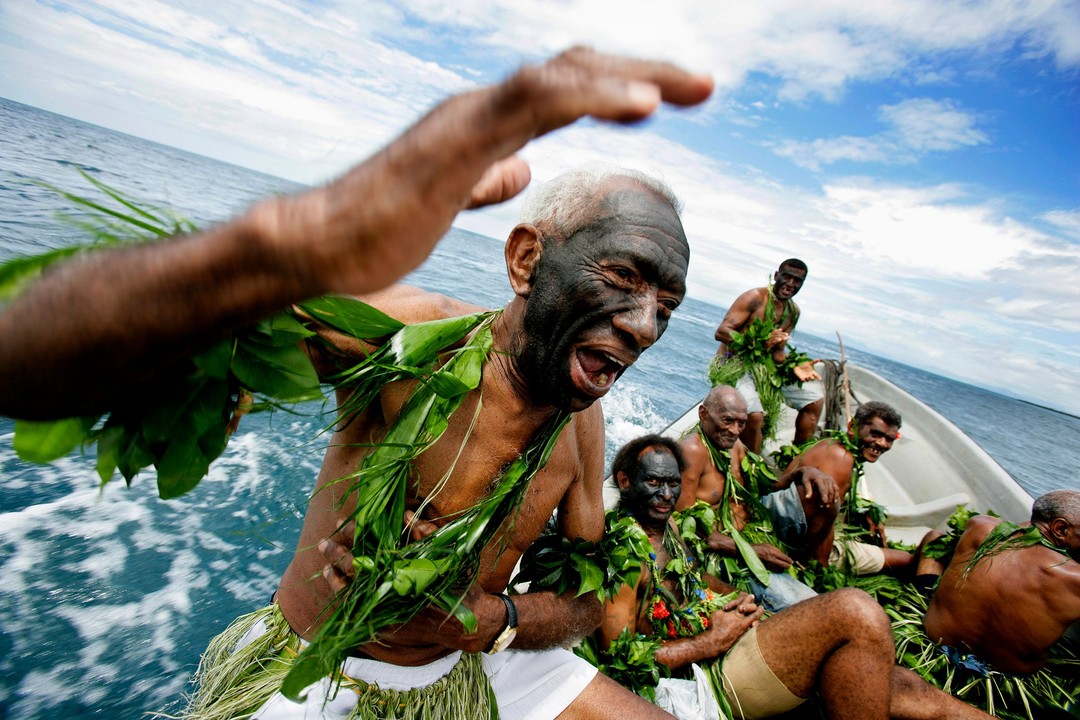
Why the Ocean Matters—From an Economic Perspective
The ocean is so fundamental to our life on Earth—providing food, producing oxygen, regulating the climate, and offering countless other benefits—that we rarely consider the riches it provides from an economic perspective. But the ocean is an economic powerhouse.
Consider this.
- The overall value of key ocean assets is more than $24 trillion.
- The range of goods and services that flow from the world’s coastal and marine environments can be valued conservatively at $2.5 trillion each year.
- Based on the gross marine product (GMP)—analogous to a country’s annual gross domestic product—the ocean is the 7th largest economy in the world.
The ocean is an extraordinary source of shared wealth for our planet, but its health is failing due to local stresses, such as habitat destruction, overfishing, and pollution, as well as global forces, such as an unprecedented rise in ocean temperature and acidity. Given that two-thirds of the ocean’s value is produced by assets that rely on healthy ocean conditions, this is a serious problem.
The Boston Consulting Group has partnered with WWF, one of the world’s largest conservation organizations, to analyze the economic value of the ocean and its assets. Last year, we published a global report on the ocean economy, “Reviving the Ocean Economy: The Case for Action—2015.” Now we are taking a closer look at the ocean’s economic value within specific regions, since the state of the ocean varies dramatically from one region to the next.
Our report on the Baltic Sea, for example, showed that this region’s future is challenged by multiple environmental threats, ranging from damaging agricultural runoff and toxic pollution to overfishing of important commercial fish stocks to contamination of the waters. But we also found that the region is uniquely well positioned to take on a global leadership role in responding to these types of challenges—and this gives me hope.
We also recently published an economic analysis of Melanesia. This region’s countries and territories—which includes Fiji, New Caledonia, Papua New Guinea, Solomon Islands and Vanuatu—are considerably more ocean than land, which means prudent management of the associated marine and coastal resources will be particularly vital for their future. We assessed Melanesia’s economic value in the following ways:
- Melanesia’s GMP: The annual GMP of the Melanesian region is at least $5.4 billion, which is more than the combined GDPs of Fiji and Solomon Islands. The GMP is derived from direct output of the ocean, including commercial marine fisheries (53%), non-industrial marine fisheries (2%), and aquaculture/mariculture (1%); adjacent benefits of the ocean, including coastal tourism (20%), carbon sequestration (5%), and coastal protection (2%); and direct services enabled by the ocean, including the cruise industry (9%) and marine tourism (8%). Due to significant insufficient data to capture the value of non-market products, these valuations are likely to be major underestimates of the total asset value.
- Shared wealth fund. The total ocean asset base of the Melanesian region is valued at a minimum of $548 billion, composed of primary assets, including seagrass ($151 billion), coral reefs ($146 billion), marine fisheries ($124 billion), and mangroves ($110 billion), and adjacent or ancillary assets, including productive coastline ($15 billion) and carbon absorption ($3 billion).
Unfortunately, increasing pressures, such as the over-harvesting of fish stocks, pollution from agricultural and mining activities, population growth, and climate change are rapidly degrading and depleting many critical assets within Melanesian waters, putting the local economies at risk.
The Melanesia report, titled “Reviving Melanesia’s Ocean Economy—The Case for Action,” proposes six essential actions for building a sustainable and inclusive blue economy in Melanesia’s ocean:
- Manage inshore fisheries and focus efforts on effective policies, legislation, management frameworks, and financing mechanisms
- Establish active, farsighted marine spatial plans to assess gaps and ensure that protected areas are prominently represented
- Ensure that Melanesian fish stocks do not decline over time (and are recovered and rebuilt where possible) and that the wider ecosystem impacts are deemed acceptable
- Take the urgent action required to fulfill and exceed the climate change actions committed to in the 2015 Paris Climate Agreement
- Support effective partnerships focused on ocean protection and restoration
- Address gender equality, ensure access to education for all, and create a more inclusive process for decision making on natural resource management
The ocean’s assets offer a classic example of the “tragedy of the commons,” whereby it makes economic sense for individuals to act in their own self-interest, exploiting precious and limited resources, while this is net negative for the system as a whole. To make meaningful progress, countries, businesses, and civil society will need to coordinate efforts. We hope that these economic analyses will help leaders frame the debate and provide additional motivation to preserve and protect the livelihoods of future generations.
Stay tuned – in an upcoming post, I will be sharing our findings on the Western Indian Ocean.


A great resource, than you Marty. We are working on natural capital blockchain initiatives and will be in touch. Lynn Connolly Sergey Ivliev Richard Olsen Simran Mulchandani Nick Gogerty Ingo Puhl Thomas H. Nyborg
Strategic Analysis | Experienced IT Business Analyst | Intelligence | Advisor | Inter-Disciplinarian
7yThanks for sharing Mr. Smits. Let us buttress your point by reflecting on the work of Alfred Thayer Mahan "Whoever rules the waves rules the world" (The Influence of Sea Power upon History, 1660–1783).
Algemeen Directeur at KindCentrum Borgele
7yGreat article. Preservation of the oceans on economic grounds.
--
7yhttp://earnwithinvite.com/index.php?ref=233612
Lecturer Creativity and Design at Peter Minturn Goldsmiths School
7yMaybe the pacific countries should adopt the habit of Canadian patrol boats, fireing warning shots at a Spanish fishing vessels in international waters boarding them, and arresting the captain before towing the ships to a Canadian port.